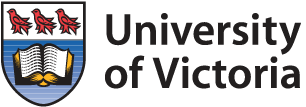Each summer, students from across the UBC Faculty of Medicine’s MD Undergraduate Program have the opportunity to pursue their passion for medical research and work closely with faculty members from across the province through the Faculty of Medicine’s Summer Student Research Program (FoM SSRP).
 From exploring the benefits of exercise for stroke recovery to understanding how to provide culturally safe care, students in the FoM’s SSRP take a deeper look into a wide variety of research topics.
From exploring the benefits of exercise for stroke recovery to understanding how to provide culturally safe care, students in the FoM’s SSRP take a deeper look into a wide variety of research topics.
We connected with Ashley Yip, a fourth-year student in the Island Medical Program, to learn more about her work on breast cancer and anxiety.
Can you briefly describe your project?
More women diagnosed with breast cancer are choosing to have both breasts removed (contralateral prophylactic mastectomy, or CPM), rather than just the one with cancer. My study is examining the psychosocial benefit of CPM compared to unilateral mastectomy and lumpectomy. I am particularly interested in whether CPM reduces rates of anxiety around the time of post-surgical follow-up mammography, which can be a very stressful moment for women as they worry about cancer recurrence.
Why were you interested in working on this project?
Prior to medical school, I worked at the B.C. Cancer Agency on research projects in the early detection of breast cancer. I also attended survivor support groups and was involved with organizing the Run for the Cure. It’s empowering to work with women who face cancer and watch how they persevere through the diagnosis. This project allowed me to engage this population, learn from their experiences, and contribute to the scant literature on this topic.
What’s one thing that surprised you about the research?
The support from the women and how excited they are about the study. I had a phone call with one woman who was very enthusiastic about the project and the work we are doing, and couldn’t wait to be involved. That was very encouraging!
How will this research experience help you in your future medical studies?
I’ve expanded my knowledge of statistics and study design. My goal is to continue to engage in clinical research, and this experience with the FoM SSRP has taught me valuable lessons to take into future projects.
What’s the most important thing you’ve learned from your project? How has it influenced your perspective on medicine and patient care?
This project has stressed to me that psychosocial outcomes are important. Although the recurrence rate for breast cancer is low, the peace of mind afforded by one surgery over another is a major factor to consider.
Support undergraduate students who want to explore their interests in medical research. The program is funded through the generous contributions of our donors and partners. Click here for more information on how to contribute.
